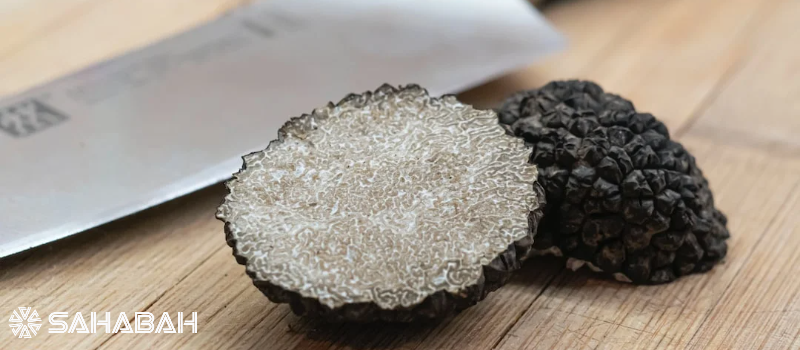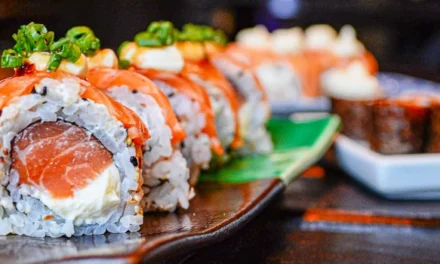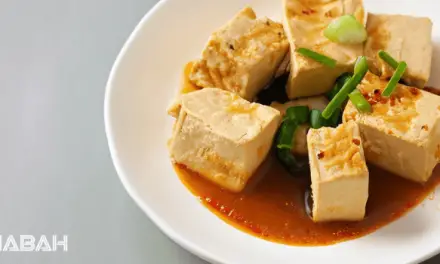Truffles are known as one of the most decadent foods on the planet. But their high price tag and air of exclusivity have also left many wondering – are truffles halal? For Muslims who want to experience truffles without compromising their values, it’s an important question.
In this comprehensive guide, we’ll uncover everything you need to know about truffles and halal status worldwide. You’ll learn what gives truffles their mystique, how they are harvested, and what options are available for ethically enjoying these coveted mushrooms.
The Rare Truffle Phenomenon
Truffles are a highly sought-after type of edible fungus that fruit underground near certain trees like oak and hazelnut. The two most prized varieties are the French Périgord black truffle (Tuber melanosporum) and Italian white truffle (Tuber magnatum). They cannot be commercially farmed and require very specific conditions to form naturally.
The irresistible aroma and flavor of truffles come from aromatic compounds like androstenol. Their short season, difficulty harvesting, and low yield also make them extremely scarce. That scarcity has turned truffles into a global delicacy, with prices sometimes exceeding $3,000 per pound!
The Halal Dilemma – Traditional Use of Pigs in Harvesting
Here is where the halal controversy lies – truffles have traditionally been harvested using pigs. Pigs have an excellent sense of smell and can be trained to sniff out truffles from meters underground. The pig locates the truffle, digs it up, and the farmer then retrieves it.
For Muslims, this introduces doubts about contamination making truffles haram. Others argue that as long as truffles are not pork-derived themselves, they should still be halal. Much depends on the likelihood of contact during harvesting. Most certifiers allow truffles if thoroughly cleaned post-harvest.
Modern truffle hunting has also evolved to use trained dogs, eliminating the halal concerns about pig usage. But traditional harvests with pigs still occur, making it a polarizing issue.
Are Truffle Products Like Truffle Oil Halal?
Beyond fresh truffles, there is huge demand for infused truffle products like truffle olive oil, truffle butter, and truffle salt. Often these contain no real truffles, just synthetic truffle flavoring to deliver the distinctive taste. Being chemically produced, these would generally be halal.
For truffle products that do contain real truffles, the halal status again depends on the supply chain. If clean machinery harvesting methods are used instead of pigs, they can achieve halal certification. But it’s vital to verify proper sourcing and certification.
Can Muslims Buy Halal-Certified Truffle Products?
While certified halal fresh truffles are extremely rare, there are growing options for halal-approved truffle products globally:
-
Angel Camacho Alimentacion in Spain offers halal truffle paste and sliced truffles verified from dog-harvested truffle farms.
-
Australian White Truffle Oil is halal-certified and uses a chemical process to recreate truffle flavor.
-
The Truffle Chips Co. range of truffle chips, salts, and oils are halal-friendly using synthetic truffle aroma.
-
Harraz F&B halal truffle fries and burger sauces provide the luxury taste without actual truffles.
So while availability is still limited, halal-conscious truffle lovers do have specialty alternatives through these types of verified products and suppliers.
Frequently Asked Questions – Are Truffles Halal
To sum up the key points, here are answers to common questions global Muslims may have about the halal status of truffles:
Are white or black truffles halal?
The type of truffle is not the issue – both black and white can potentially be halal through ethical harvesting. It is the supply chain that matters most.
Can Muslims eat truffles in restaurants?
Muslims should inquire about the truffle sourcing at restaurants for peace of mind. If the eatery has halal certification and reputable suppliers, the risk is lower.
Are most truffle products actually vegetarian?
No, most products advertising “real truffle” flavor will use truffles harvested traditionally with pigs. Synthetic truffle flavorings are vegetarian and vegan.
Do I need to avoid truffle oil?
Truffle oils are nearly always halal-friendly because they use chemical flavorings, not real truffles. But a halal logo should still be verified.
Are truffles kosher?
Yes, truffles are generally kosher, even when pigs assist in harvesting. Jews allow these types of pig contact for naturally growing mushrooms.
Conclusion: Ethical Options Exist for Halal Truffle Lovers
In summary, fresh truffles are a halal grey area depending on ambiguous sourcing practices. But there are increasing ethical options for Muslims to enjoy real or synthetic truffle products worldwide. With careful selection of verified halal truffle brands, Muslims need not miss out on this luxury experience.
While small amounts of truffles may be permissible to some, observant Muslims should verify halal compliance to be 100% comfortable indulging in the unique taste of truffles guilt-free. It simply requires a bit more care in sourcing to align with Islamic values.





